

Brief description of the organization
PtJ is a German research agency (Projektträger) within the Research Centre Jülich (JUELICH; organisation short name used in proposal) which undertakes the management of R&D and innovation programmes of various contractors representing the national government; mainly the Federal Ministry of Education and Research (BMBF), the Federal Ministry of Economics and Labour (BMWA), the Federal Ministry for Environment (BMU). PtJ´s Division for Biological Innovation and Economic (BIO) is responsible for the administration of all funding in the context of the National Research Strategy BioEconomy2030. For that purpose, JÜLICH is formally authorised (beliehen) by the Ministry to conduct all tasks related to the programme management i.e. launch of calls, evaluation as well as contractual and financial administration. PtJ allocates and distributes financial resources exclusively from the federal governmental budget on behalf of the Federal Ministry of Education and Research (BMBF) in accordance with requirements of national research funding. Beyond this, JUELICH assists the Ministry in planning, analysing, updating and evaluating/monitoring the programme as well as in supporting dissemination and exploitation of results and governing issues. It also hosts several national contact points (NCP) for the 7th Research Framework Programme of the EU, among others for the thematic priority Life Sciences, Genomics, and Biotechnology for Health.
Website: http://www.ptj.de
Role in the Consortium
JUELICH is the Coordinator of the Consortium (Leader of Work Package 5 Coordination and Management).
Staff involved will also give input to WP1, WP2, WP3 and WP4.
Staff involved in the Coordination and Support Action
 Rolf Stratmann Rolf Stratmann |
 Hanna Steffens Hanna Steffens |
 Sergi Costa Sergi Costa |
Relevant (previous) activities
Brief description of the organization
Stichting Wageningen Research (WR) is formed by different research institutes specialised in areas such as crop sciences, life-stock, economics, environment, food, lifestyle, marine, bio-based production, and food safety. These institutes carry out strategic, application-oriented and field-based research. They are commissioned by the government, commercial businesses and non-profit organisations. Collaboration is also pursued with universities and/or other national or international organisations. WR has an annual turnover of M€ 330 and employs about 2500 persons (both figures for 2014). WR is authorized by the Ministry of Economic Affairs for various SCAR related activities, including the participation in SFS-25-2016: Support Action to a common agricultural and wider bioeconomy research agenda (CASA).
Wageningen Research (WR) forms with the Wageningen University (WU) one organisation: Wageningen University and Research (WUR). WR and WU are two independent legal entities, but in terms of content, objectives and activities they are aligned both at the strategic and tactical levels within the Wageningen University and Research cooperative arrangement. This international research and knowledge centre focusses specifically on the theme 'healthy food and living environment'. The combination of state of the art knowledge, expertise and experiences enables WUR to work through its international networks in many countries all over the world.
WUR aims to address complex issues such as ecological sustainability, public health and a robust food supply using interdisciplinary and transdisciplinary approaches, through networks of cooperation between knowledge institutes, development organisations, policy makers and private sector parties. WUR is especially strong in the bioeconomy and environment domains and participated in over 500 FP7 projects, 100+ as coordinator. After two years of H2020, WUR participated in 112 projects from which 32 as coordinator. Corporate Strategy & Accounts, one of WR’s departments, is responsible for strategy development, national and international relation- and account management, coordination of research and innovation programmes, grants and tender support, communication and visits.
Website: http://www.wur.nl
Role in the Consortium
WR is the leader of WP1 Representativeness. WR’s staff members also contribute to WP2, WP3 and WP5 and give input to all other Work Packages.
Staff involved in the Coordination and Support Action
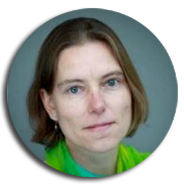 Christine Bunthof Christine Bunthof |
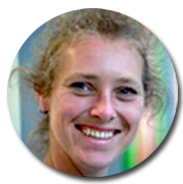 Dorri te Boekhorst Dorri te Boekhorst |
 Brenda Kuźniar-van der Zee Brenda Kuźniar-van der Zee |
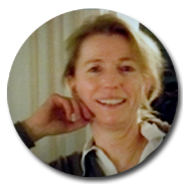 Annemarie Groot Annemarie Groot |
 Floor Geerling-Eiff Floor Geerling-Eiff |
Relevant previous projects and activities
Brief description of the organization
The Federal Office for Agriculture and Food, as it is called in English, is a German institution under public law, directly subordinated to the Federal Government and empowered to conduct business on behalf of the Federal Ministry of Food and Agriculture (BMEL).
The BLE fulfils a variety of tasks: Its mandate includes carrying out measures which strengthen agriculture, food production, fishery and forestry as well as rural areas.
In addition, the BLE acts as funding body for Research and Innovation and as programme manager for BMEL on national, European and international level in the field of agriculture and food production. Related programmes are the Federal Programme on Innovation, the Federal Organic Farming Scheme and a specific programme dedicated to transnational cooperation supporting initiatives like ERA-NETs and JPIs.
The BLE unit “European Research Affairs” has its focus on the coordination and collaboration towards ERA and is currently a partner in 12 ERA-NETs and two JPIs along the whole value added chain. The BLE is also member of the Standing Committee on Agricultural Research (SCAR) on behalf of BMEL.
Website: http://www.ble.de
Role in the Consortium
BLE will be in charge of leading work package 3 ‘Strengthening Strategic Advice’ and is responsible for tasks 3.1: Assess the state of play of research policy in the broader Bioeconomy’, as well as task 3.5 ‘Collect and prioritise ideas for future SCAR Foresight studies‘.
Furthermore, BLE will contribute to all work packages where it is stated and required.
As a programme manager for BMEL, BLE has extensive know-how in project management also on national level.
Staff involved in the Coordination and Support Action
 Elke Saggau Elke Saggau |
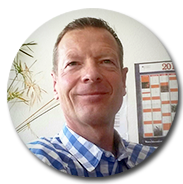 Johannes Bender Johannes Bender |
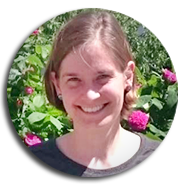 Vera Steinberg Vera Steinberg |
Relevant previous projects and activities
Brief description of the organization
Inside Ministry of Agriculture, Agrifood and Forestry (MAAF), the General Directorate for Education and Research (DGER) is in charge of commissioning the high schools and the bachelor and graduate education institutions in the fields related to agriculture, public research centres and associations of technical centres for improving synergies. DGER manages some programmes related to the French general regime of research financing, and it manages also specific funds uptaken from the overall business activity of the agricultural sector and attributed to innovation actions, called CASDAR.
The DGER is also in charge of SCAR activities at European and national level, the implementation of EIP in France and the implementation of the Societal Challenge 2 of Horizon 2020 in France.
Role in the Consortium
MAAF/DGER is member of the consortium and is Work Package leader for WP4 Communication and Dissemination.
Staff involved in the Coordination and Support Action
 Pierre Grenier Pierre Grenier |
 Valérie Dehaudt Valérie Dehaudt |
 Corinne Bitaud Corinne Bitaud |
Relevant previous projects and activities
DGER is involved in the ERA-Nets Core Organic I, II, Plus and in the future Cofund as well in C-IPM.
In Core Organic DGER is in charge of dissemination of the results at European and national level and of assessing the impact of the Core Organic funded projects.
In addition to Core Organic the DGER has the experience of many CASDAR calls where dissemination of the project results is a priority.
Web site: http://agriculture.gouv.fr/developpement-agricole-et-rural-casdar
Brief description of the organization
The Ministry of Environment and Food of Denmark, (The Danish Agrifish Agency) has transferred the mandates for participation in SFS-25-2016: Support Action to a common agricultural and wider bioeconomy research agenda to Danish Centre for Food and Agriculture (DCA) which forms part of Faculty of Science and Technology at Aarhus University (AU).
DCA, established in 2011 within the University of Aarhus with the main task to manage the Ministry of Environment and Food’s program on science based polity advice.
DCA accomplishes, hereunder in collaboration with both private and public partners, a series of tasks, e.g.
Website: http://www.dca.au.dk/en/
Role in the Consortium
AU will be the Leader of Work Package 2 (Added Value and Improved Quality for Greater Impact). Staff involved will also give input to WP1, WP3, WP4 and WP5.
Staff involved in the Coordination and Support Action
 Vivi Hunnicke Nielsen Vivi Hunnicke Nielsen |
 Inge Harbo Inge Harbo |
 Alex Percy-Smith Alex Percy-Smith |
Relevant previous projects and activities
Brief description of the organization
Teagasc is a semi-state organization with a mission to support science-based innovation in the Irish agri-food sector and the broader bio-economy through research, education and training. On the research side, it has capabilities from farm to fork with wide ranging expertise including animal and crop production, genomics, microbiology, food science, bioinformatics, economics, sociology, geography, nutrition and market research. In addition to providing business and technology advice to approx. 45,000 farmer clients, it provides a range of training options to suit full and part-time farmers.
Relevant (previous) activities
Brief description of the organization
National Ministry of Health (MOH) with responsibility for the areas related to animal health, food and feed safety and animal welfare at national and international level including research planning and funding. All the above activities are set under the General Directorate for Animal Health and Veterinary Medicines (DGSFAV). The Directorate encompasses nine units, two of them responsible for research management and funding. Of interest, the DGSFAV is responsible for: animal health, animal identification, management of the National Centre for Animal Diseases Control and the Central Crisis Unit; animal welfare and animal reproduction; animal nutrition and feeding-stuffs; Veterinary Pharmaceutical Products (VMPs) and residues; import controls of animals and food of animal origin.
Besides, Ministry of Health is the central competent authority that coordinates and connects the activities of Istituti Zooprofilattici Sperimentali – IZSs that currently perform the 90% of research on Animal Health; it has the institutional role of research promoter in IZSs at national and international level; it drives the main research areas within the National Health Program and the directions from National Health Research Commettee, with a three-years based program on Animal Health, Food Safety and Animal Welfare; it defines and supports the IZSs financial needs; manages the National Reference Centres; it turns all the activities of IZSs in governmental actions (regulation, recommendation, etc).
Funds come from the Current research programme (Current Programme yearly funds Institutes with amounts of 10-15 M€) which is dedicated to applied research projects developed by the IZSs according the National Health Plan and given the strategy of research at territorial level.
MoH is backstopped for the international funded projects management, including the present one, by Istituto Zooprofilattico Sperimentale del Lazio e della Toscana
Website: http://www.salute.gov.it
Role in the Consortium
Ministry of health will be the Task manager in the Work Package 3, Task 3.5 and contributor to Task 3.6. Staff involved will also give input to all Tasks in WP3 and WP2, WP4
Staff involved in the Coordination and Support Action
 Silvio Borrello Silvio Borrello |
 Marina Bagni Marina Bagni |
 Romano Zilli Romano Zilli |
Relevant previous projects and activities
MOH with the technical support of IZSLT, contributed in mapping of EU animal health research institution in ERAnet EMIDA, in building SRAs on animal health at EU level (ERAnet EMIDA), with a global perspective (ERAnet STARIDAZ, leader of WP5) and at Mediterranean level (FOREMed, Italy), in identifying criteria for priority setting and foresight methodologies for research (ERAnet STARIDAZ, Deliverables of WP5). MoH financed 5 transnational calls under several different ERAnets dealing with animal health and welfare summing up to 5 million Euros.
Ministry of Health in coordination with MIPAAF (Ministry of Agriculture) is represented in SCAR within three CWG dealing with animal health and welfare (CWG AHAW - as coordinator ; SWG Fish ; CWG SAP) ; in several ERAnets dealing with animal health issues (EMIDA ; ANIHWA ; STARIDAZ, SusAn) , in JPIs, in other ERAnets relevant for human medicine sector. And in the IRC STARIDAZ.
23.06.1970, n.503; D.lvo 30.12.1992 N. 502), nonprofit self governing body appointed with the task of providing technical and scientific support and assistance in veterinary and food safety policies and research within local, national and international governmental, FAO, EFSA, EU programmes (art.1, D.Lgs 30.06.1993, n.270).
Brief description of the organization
The Ministry of Agricultural Food and Forestry Policies (MIPAAF) supports the agro-food and forestry sector through the governmental Programme in Agriculture, yearly issued, devoted to the development and sustainability of a competitive agricultural, agri-food and agroindustry sector, including promotion of research and innovation, the development of agri-food chains, protection and exploitation of typical and quality products and internationalization of enterprises, the implementation at national level of the Common Agricultural Policy (CAP).
The research and innovation projects funded through national and international activities are under the standing National Strategic Plan for innovation and research, contributing to align the research and rural development policies for the best agriculture development in the wide context of Bioeconomy.
MIPAAF is SCAR member and involved in many SWG and CWG also through experts from CREA (Italian Research Centre for Agriculture and Economic Analysis).
MIPAAF contributes to European Room Area (ERA) as partner in many actions (ERANET, JPI and CSA) aimed at the coordination in research and innovation and the definition of a common research agenda.
MIPAAF is also managing authority for National Rural Development Programme “National Rural Network”.
Website: http://www.politicheagricole.it
Role in the Consortium
MIPAAF will be task leader in WP3 task 3.7 and will contribute mainly to task 3.1.
MIPAAF will act as contributor in WP2 task 2.2, task 2.5.
The MIPAAF contribution will be given also for WPs as member of SCAR WG and several SCAR groups.
Staff involved in the Coordination and Support Action
The Office responsible of the CSA activity will be Department of European and international policies and rural development – General Directorate Rural Development – Research and experimentation DISR4. All the listed persons with different role are involved in the various international actions for agriculture research coordination and cooperation in which MIPAAF - DISR IV is involved as an official partner/member.
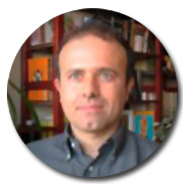 Stefano Grando Stefano Grando |
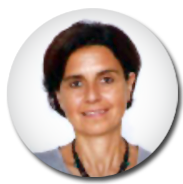 Serenella Puliga Serenella Puliga |
 Annalisa Zezza Annalisa Zezza |
 Simona Cristiano Simona Cristiano |
MIPAAF will be supported in the activities in CSA by CREA (Italian Research Centre for Agriculture and Economic Analysis) and its Department for Agricultural Policies and Bioeconomy. Experts related to the National Rural Development Network, in coherence with the innovation priority of the programme, will support the CSA activities.
Relevant previous projects and activities
Third parties involved in the project (including use of third party resources)
For the financial administration and accounting of the EU contribution MIPAAF will make use of the Istituto Agronomico Mediterraneo di Bari CIHEAM - IAMB (Mediterranean Agronomic Institute of Bari, Italy), acting as third party on the basis of an agreement concluded between the parties. As previously applied in FP6, FP7 and H2020 coordinated actions participated by MIPAAF, due to the standing agreement, MIPAAF will authorize IAMB to make payments and perform any other duties related to the correct management of the resources of CASA, under Horizon 2020 accounting rules (third party providing in-kind contributions free of charge, according to art. 12 of AMGA, Annotated Model Grant Agreement)
Brief description of the organization
The mission of the Own Capital of the Institute for Agriculture and Fisheries Research (short name in this project ILVO) consists of both performing and coordinating policy-supporting (aimed at the Flemish Region) scientific research and the associated public service in view of a sustainable agriculture and fishery in an economic, ecological and social perspective. Based on its different scientific research disciplines, ILVO builds up knowledge necessary for the improvement of products and production methods, for the monitoring and safeguarding the quality and safety of the end products and for the improvement of the policy instruments as a basis for the development of the sector and the agricultural policy of the rural area. ILVO is one of the founding partners of Agrolink Flanders.
Agrolink Flanders is a (new) collaboration platform of 18 Flemish research institutions and builds upon a vast quantity of knowledge and significant infrastructure. With 2 top-10 universities, a university college, and 14 knowledge, demonstration and trial centres, Agrolink Flanders provides answers to all questions related to sustainable animal and plant production. Multidisciplinary research, modern laboratory and farm equipment, a large land base (550 ha of experimental fields, 8 ha of experimental greenhouses, and 32000 m2 of animal housing), and strong expertise regarding a wide range of plants and animals, are the keys to our success.
As Agrolink Flanders is not yet recognized as a juridical entity, Agrolink Flanders will be participating through ILVO. Both EV ILVO and Agrolink are involved in several projects in the 7th Research Framework Programme of the EU and Horizon 2020.
Website: www.agrolink-vlaanderen.be and www.ilvo.vlaanderen.be
Role in the Consortium
EV ILVO will be the 3.3 Task Manager and will contribute to task 3.4
Relevant (previous) activities
Brief description of the organization
The INIAV is the R&D Laboratory of the Ministry of Agriculture. One of its missions is to provide technical and scientific input, consultancy and advisement in the agricultural and veterinary fields to support public policies. INIAV’s performance in areas such as Food Safety, Plant Health, Animal Health and Genetic Resources (preservation and conservation) can bring a both unique and fundamental contribution to the country’s development. Also, INIAV assists the Ministry in planning the national agricultural innovation strategy for policy making as well as in supporting dissemination and exploitation of results and governing issues. It also hosts the SC2 and AKIS delegates. INIAV is also mandated by the Ministry of Agriculture to manage specific agricultural R&D programs whenever available.
Website: www.iniav.pt
Role in the Consortium
INIAV will be 4.4 Task Manager. Staff involved will also give input to WP3 and WP5..
Relevant previous projects and activities
INIAV has a large experience as a partner in consortium projects with other European organizations.
FP7 partner during the past 3 years in the following projects: